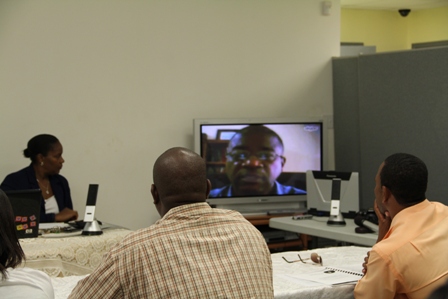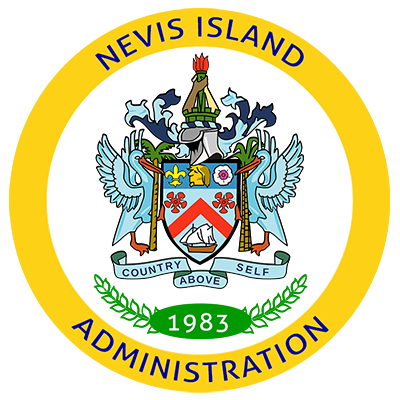Vector Control – an essential Public Health function; responsible for dramatic decline in communicable diseases

NIA-CHARLESTOWN NEVIS (November 09, 2011) — Vector Control was an essential public health function in the past which continued to be so at present and in the forseeable future. That was the view expressed by Chief Medical Officer (CMO) in St. Kitts and Nevis Dr. Patrick Martin, when he delivered remarks at the opening of a three day workshop for Public Health Workers on Integrated Vector Management On Monday November 07, 2011.
The DMO who was not physicaly present at the Pan American Health Organization sponsored function, delivered his remarks via Skype and cited that Vector Control was responsible for the dramatic decline of communicable diseases in the Federation and throughout the Caribbean.
“The Vector Control Officers are indispensable to the work of Public Health. You may or may not be aware that communicable diseases account for only four percent of the mortality in the Federation. There is a similar picture throughout the Eastern Caribbean. This is the evidence of the value of functions such as vector control,” he said.
Notwithstanding, Dr. Martin said that it was no cause for public health workers to lighten up because there were challenges already facing the Federation including climate change which promised an increase in rainfall frequency. That being the case he stated, there will be an increase in mosquito activity in addition to the fact that Dengue was endemic in the Federation and the region.
The CMO noted that already there had been a spike in the number of new Dengue cases for 2011 and revealed the outcome of a recent survey in St. Kitts.
“A recent survey conducted in collaboration between Ross University and the Environmental Health Department found the vector for Malaria for the first time in the Conaree area in St. Kitts and also the vector for West Nile Virus was found around the Salt Pond area in St. Kitts. We know that historically the vector for Malaria has been in the St. James area in Nevis,” he said.
Dr. Martin said the Workshop had come at an opportune time for Public Health Workers given the findings of the recent survey and other emerging health threats from vector borne illnesses.
“We cannot rest on our laurels. We have to step up vector control. We also have to step up the control of rodents because Leptospirosis is an emerging infection. So this is a very good opportunity for all the participants.
“I know that your teacher in Dr. Rawlins and the rest of the facalty will keep you engaged. Dr Rawlins is a son of the soil, he is a renowned teacher and researcher in the Caribbean and internationally. There is no one better to facilitate this workshop. So I encourage you to take full advantage of him so by the time this workshop is over he will be exhausted and not you,” he said.
In conclusion Dr. Martinn used the opportunity to urge those involved in Environmental Health to see it as a discipline they should take seriously as a career
“I can see persons moving up the ladder from environmental health to consultancies to permanent secretaries, doing lectures around the Caribbean like Dr. Samuel Rawlins. So this is a very important arm in a valuable field of Health and Environmental Health,” he said.
